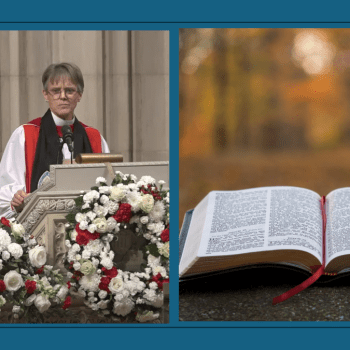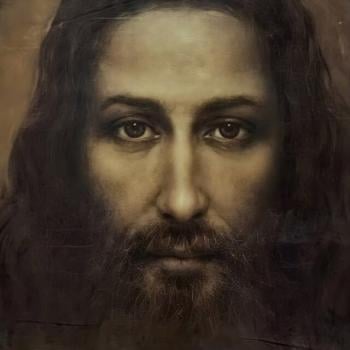Masery
The future of Paganism lies in embracing both modern and ancient ideas. It isn't in recreating rituals down to ancient cultural specifics and languages; it is in reconnecting to our ancient human roots. The community will thrive by embracing the idea of tribalism. An individual cannot survive alone, especially in today's economy and environmental change. We can benefit from sharing our resources -- time, finances, or goods -- with each other and our groups. We can look to our ancestors, even those from just a few generations ago, to learn how to reconnect to our planet by growing our own food and learning how to reconnect to our spirit by living simply. Modern Paganism is very young. To remain far into the future, we must be a living religion -- one that thrives and changes its social structure, ritual style, and content; one that meets the different needs of each new generation.
Masery is a Pagan Panentheist and follower of Gaia. Her past activities in the community include Pagan college groups, Pagan Pride Day, the Order of the Elodrym, and teaching magick and mysticism. Her blog at Patheos is "Pagans with Disabilities." She lives in Missouri with her husband, Arkayne, and small zoo of pets.
Rev. Robert Paxton
Paganism has been (with a few exceptions such as Reclaiming) largely inward-focused and centered on personal growth and transformation. Where Paganism has engaged with the larger culture, it has largely been to defend its own rights. However, in a world where the effects of climate change are becoming more and more apparent, Paganism's environmental ethos could be an important cultural contribution. As I see it, Paganism will remain a niche path unless more Pagans engage -- as Pagans -- in the public discourse about how we allocate and use natural resources.
Rev. Robert Paxton is a Minister with Circle Sanctuary living in Madison, WI. He counts himself an eclectic Wiccan, is married, and works in the IT field.
Pitch
I think that the Neo-Pagan Revival (mostly post-WWII) expresses a range of adaptations to some circumstances of living in today's complicated and quite technological world. It looked and continues to look to ancient forms in order to accomplish innovative, experimental, and DIY postmodern adaptations. The telling contrast is not between "ancient" and "modern," but between more fitting and less fitting postmodern adaptations.
Pitch: Bobcats, redwood trees, ravens, and the lay of the Land drew me into Neo-Paganism at an early age. I never left. These days I am affiliated with BTW and California grown Craft and with the Underworld Tradition shared by R.J. Stewart.
Scott
How do you think Paganism should handle the challenges of entering the mainstream? By creating a unifying body of Pagans from different faith or belief systems to represent our interests in society. By shaping an organization combined of individuals to help make the Pagan community more visible through public events geared toward informing people of the beliefs of Paganism as a whole. By reaching out to society and informing them about what Paganism represents in their beliefs, so society can see through public functions and peaceful, informative activities that show what the faiths are about. The more the public sees what we're about, the more acceptance the belief system will get.
I believe it is possible for Paganism to fizzle out by a lack of public awareness of what each faith represents. Books are often only picked up by other Pagans, but they do not show the public the true spirit of the heart of Paganism to the average non-Pagan individual. If we reveal ourselves to the world as a unified group, where they can see what we believe in through everyday works in the public eye, we can show the world what they are ordinarily blinded by through lack of knowledge or lack of visibility of Paganistic involvement in a positive public way.
I am a Canaanite Pagan who has also reverence for Faerie presences in our lives. I believe that the Faerie have a strong presence in the world as we know and experience it -- a combination of pantheist and monotheistic beliefs. I believe in a monotheistic force, which I name "The Source" (i.e., the source of all things) and also a diverse pantheon of different gods and goddesses that guide us through life.
Scott is a practicing solitary for thirteen years in Upstate NY. He is an employee of Walmart, and a spiritual counselor on the side for those in need.
Shadow Fire Weaver
I have been a practicing solitary for twenty-two years. My husband's newfound interest meant I had to find a structured way of teaching him. When I found the Witchschool (WS), I fell in love with the tradition and we both joined. While I am reviewing the basics, I am blessed to see hubby experience them for the first time. WS enables me to continue on my Spiritualist path as well as my exploration of Voodoo. I am a devotee of Kali Ma and consider myself a Spiritualist Witch. By this I mean that my personal focus is on communication with those on the other side.
I believe one's "tradition" is becoming less important while how one practices is becoming more important. For example, WS, as an online, accepting, open, communal portal is the way of the future. Bringing people, even of different traditions, together to practice is more important than finding people to fit into a strictly run tradition. I believe we always need to be open to coexistence with other faiths. I doubt we will ever be mainstream; however I also believe we need to be peaceful and accepting toward non-Pagan faiths and neutralize, never reflect, the prejudice and negativity we may experience at their hands. Yes, Pagan study needs to continue to grow on all levels, including theology! Lastly, I like to believe that we as a people tend to change with the times more easily than do those of other faiths. We know the wheel turns, not just "out there" but within. We celebrate those changes. I know we will continue to do so.
Shadow Fire Weaver




